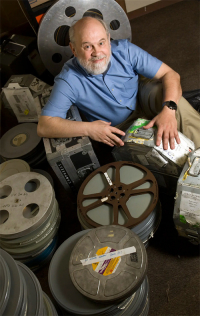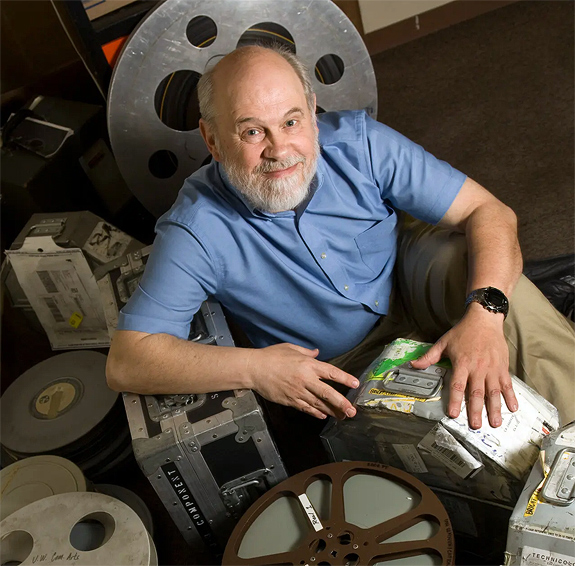In other news today, we’ve updated our 4K Ultra HD Release List here at The Bits with lots of new titles and 4K UHD pre-order links. So let’s talk about some of the titles in question...
Kino Lorber Studio Classics has revealed that Howard Hawks’ Hatari! (1962) and Peter Collinson’s Fright (1971) are coming soon to 4K Ultra HD from the label. Also newly revealed to be coming soon to Blu-ray only are John Farrow’s Botany Bay (1952) and Ray Austin’s 1,000 Convicts and a Woman (1971), the latter as a Kino Cult title. Officially due on Blu-ray on 4/30 are Charles Vidor’s Thunder in the East (1952) and John Farrows’ Submarine Command (1951). And on 5/7, look for The Philo Vance Collection, which includes The Canary Murder Case (1929), The Greene Murder Case (1929), and The Benson Murder Case (1930).
Paramount has just revealed something very interesting: A slate of new “All Four Formats” packages of popular catalog titles is due on 5/21 for just $10.99 each on Amazon! Each of these includes 4K Ultra HD, Blu-ray, DVD, and a Digital code in a regular DVD case—a helluva good deal! And the titles in question include John Carpenter’s Escape from LA (1996), The Hunt for Red October (1990), Shutter Island (2010), Interstellar (2014), The Untouchables (1987), Beverly Hills Cop (1984), Cloverfield (2008), A Quiet Place (2018), and The Lost City (2022). Sure, it’s a little wonky to be getting 4K in a DVD box, but at that price it’s hard to complain. Click on each of the title links to pre-order them on Amazon.
Also, our friends at Eureka! in the UK have set Ting Shan-hsi’s A Queen’s Ransom (1976) for release on Blu-ray in the UK on 28 May, as part of their Eureka Classics line.
In other news, I’m sure many of you are aware that The 96th Academy Awards were held last night here in Hollywood, with Christopher Nolan taking home the honors for Best Director and his Oppenheimer winning Best Picture. You can find the complete list of winners here.
Are any of you guys fans of Gerry Anderson’s classic TV series Space: 1999 (1975-77)? Our friend Jeffrey Morris has launched an Indiegogo campaign to help fund the completion of his new documentary, The Eagle Obsession, which takes an in-depth look at the design and impact of one of the most iconic space vehicles in all of filmed science fiction, the Eagle Transporter. The documentary is now in production and Jeffrey is going to finish it come hell or high water. You can make a contribution to this effort here on Indiegogo. And you can see a terrific 12-minute promo for this project below...
Total honesty: I share Jeffrey’s obsession with the Eagle. I have a whole diecast squadron of them sitting here on the bookshelves next to my office desk, thanks to the good people at Product Enterprise and Sixteen 12. So I’m really looking forward to watching this new documentary myself.
Finally today, I wanted to take a moment to acknowledge the passing of someone who had a huge impact on me: David Bordwell, the groundbreaking film theorist, historian, and author, sadly passed away on February 29th. He was 76.
David was the Jacques Ledoux Professor Emeritus of Film Studies at the University of Wisconsin-Madison, and… as it happens… my film professor in college at the UW-M. He’s the person who first introduced me to the likes of Kurosawa, Ozu, Leone, Eisenstein, Dreyer, and so many others in the late 1980s. He taught me how to watch, read, and understand the language of cinema, a gift that’s enabled and enriched everything in my professional life since.
Before I was actually David’s student, I had a work/study job as a projectionist in the UW-M film department in 1988. And once in a while, David would slip into the booth before a screening to check that all was well. The first time I ever met him, I admitted to having nearly missed the reel changes during the previous week’s screening—which just so happened to be Sergio Leone’s Once Upon a Time in the West (1968)—so engrossed was I by the experience of seeing it for the first time. But the moment I said this, David’s eyes lit up and he started talking to me about the film; I could tell that he recognized a fellow cinephile and appreciated my enthusiasm. In a series of similar encounters, he extolled the virtues of Kurosawa’s Seven Samurai (1954), Sergei Eisenstein’s Alexander Nevsky (1938), and more. Ultimately, it was those conversations that inspired both my major decision, and my life’s path. Trust me when I say that my copies of his indispensable texts Film Art: An Introduction, Narration in the Fiction Film, and Figures Traced in Light: On Cinematic Staging are well worn indeed.
My heart goes to out to his wife Kristin Thompson and the entire UW-M film community.
You can read more about David’s life, work, and impact here via The New York Times and also here on the terrific blog he shared with Kristin. You can also find his fine Observations on Film Art video series on The Criterion Channel.
From one cinephile to another: Thank you, David.
Stay tuned...
(You can follow Bill on social media at these links: Twitter and Facebook)







